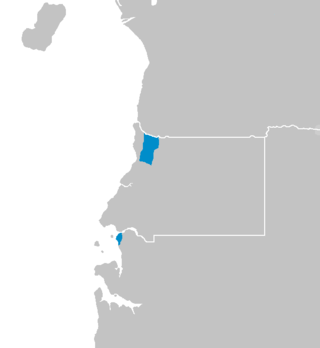Seki language
| Seki | |
|---|---|
| Sekiyani | |
| Native to | Equatorial Guinea, Gabon |
Native speakers | 12,000 (2001-2007)[1] |
| Language codes | |
| ISO 639-3 | syi |
| Glottolog | seki1238 |
B.21[2] | |
| ELP | Seki |
 | |
Seki, also Baseke, Sheke or Sekiana, is a language indigenous to Equatorial Guinea and Gabon. It had been spoken in villages of Rio Campo and Northern Bata, along the coast, but its native speakers have begun abandoning the language for Spanish, Fang, and Kombe. Can be related to Kako spoken in the East region of Cameroon and some parts of the west of Central African Republic.
Phonology
Consonants
| Labial | Alveolar | Post-alv./ Palatal |
Velar | Labio- velar | ||
|---|---|---|---|---|---|---|
| Nasal | m | n | ɲ | (ŋ) | ||
| Plosive/ Affricate |
voiceless | p | t | t͡ʃ | k | |
| voiced | b | d | (d͡ʒ) | ɡ | ||
| prenasal vl. | ᵐp | ⁿt | ⁿt͡ʃ | ᵑk | ||
| prenasal vd. | ᵐb | ⁿd | ⁿd͡ʒ | ᵑɡ | ᵑɡ͡b | |
| Fricative | voiceless | s | ||||
| voiced | β | (z) | ||||
| Rhotic | r | |||||
| Approximant | l | j | w | |||
- /z, d͡ʒ/ only rarely occur phonemically.
- /ɡ/ may be lenited as [ɣ] in intervocalic positions.
- /ᵑɡ/ can be heard as a nasal [ŋ] when in word-final position, or when followed by /l/.[3][4]
Vowels
| Front | Central | Back | |
|---|---|---|---|
| Close | i | u | |
| Close-mid | e | o | |
| Open-mid | ɛ | ɔ | |
| Open | a |
References
- ^ Seki at Ethnologue (18th ed., 2015) (subscription required)
- ^ Jouni Filip Maho, 2009. New Updated Guthrie List Online
- ^ Ondo-Mébiame, Pierre (1986). Esquisse phonologique et morphologique du seki. Libreville: Université Omar Bongo.
- ^ Echegaray, Carlos González (1952). La clasificación nominal en el baseque. Archivos del Instituto de Estudios Africanos, v. 6, no. 20-23. pp. 73–92.
{{cite book}}: CS1 maint: location (link) CS1 maint: location missing publisher (link)
